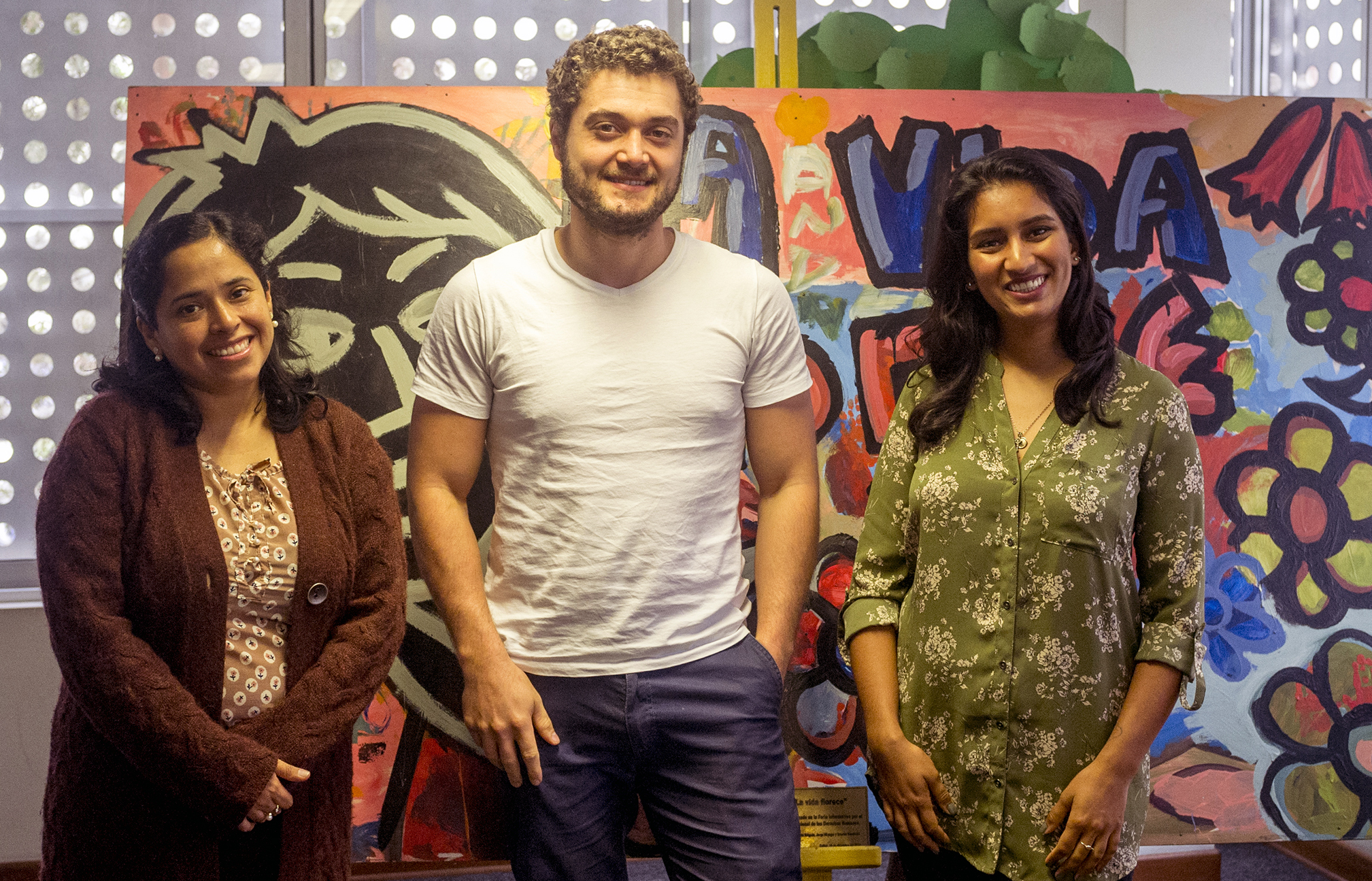Ending Violence Against Women in Peru
Story

What Simon Morin loved most about his 18-month volunteer placement in Lima, Peru, was the way it brought together his interests in Latin America, gender equity and human rights. Having studied political science and international cooperation in Montreal and taken on an internship in Mexico with UN Women, he was already familiar with the region’s social and economic issues.
Simon, who just recently completed his volunteer stint through Cuso International, was given the mandate to promote gender equity and human rights. The role of his local partner, the Office of the Ombudsman (Defensoría del Pueblo), is to act as a watchdog in order to make sure that public services are adequate and to protect the rights and freedoms of Peruvian citizens. Simon focused his efforts on the prevention of discrimination and violence against women, particularly in health-related matters.
In Peru, violence against women, commonly referred to as “machista violence” takes on different forms: conjugal violence, human trafficking, sexual harassment and femicide, a term used to designate the murder of a woman killed simply for being a woman. Outraged by the situation and the prevailing impunity for aggressors, thousands of citizens took to the streets in August to demand an end to the violence committed against women.
“According the World Health Organization, Peru has the third highest rate, after Ethiopia and Bangladesh, of sexual violence committed against women aged 15 to 49. Every day, I find myself working on concrete cases of violence. It is both frightening and sad.”
Diana Portal, a lawyer and Simon’s colleague at the Defensoría, explains that even if progress has been made on the women’s rights front, violence is still a crucial problem in Peru. It impacts upon women’s lives, their self-fulfilment and limits the expression of their rights. The way Diana sees it, one has to, above all, work on prevention and education.
“We live in a context where women’s rights are continually violated. Where there is a lot of discrimination against women and where about 10 femicides are reported each month.”
During his placement, Simon was able to contribute to numerous projects. He was involved in the creation of a national registry for victims who underwent forced sterilizations between 1996 and 2000, during Peru’s internal armed conflict. He also worked on a campaign against sexual harassment; wrote up reports; made recommendations on legal projects; and supported a working group whose objective was to promote gender equity and respect for cultural differences within the Defensoría itself.
Before travelling to Peru, Simon completed an internship in Mexico for the #HeForShe campaign, which aims to encourage men and boys to take action against the inequities faced by women and girls.
Simon has put his skills to good use and developed a guide on how men can contribute to end violence against women. For him, being a man allows him to connect more easily with other men―particularly those more reticent or misinformed about gender equity or feminism―and to encourage introspection.
“I have the feeling that when we talk about feminism, or when women speak to men about feminism, that certain men start to get defensive. So, if it’s man-to-man, there may be a greater chance of being listened to.”
Please consider donating today to help send more volunteers like Simon where they are needed most to make a real difference.